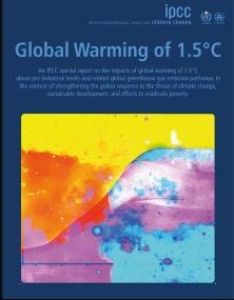Join getAbstract to access the summary!

Join getAbstract to access the summary!
Intergovernmental Panel on Climate Change
Global Warming of 1.5 °C
Summary for Policymakers
IPCC, 2018
What's inside?
If societies don't prevent catastrophic climate change now, they might not get a chance.
Recommendation
The window of opportunity for preventing catastrophic climate change is narrowing fast, warns a newly released special report by the United Nations Intergovernmental Panel on Climate Change. The report lays out stark differences between a 1.5°C temperature increase, which the world may reach by as early as 2030, and the 2°C limit set under the Paris Climate Accord. The authors believe that reaching the more ambitious 1.5°C target is feasible but will require urgent and far-reaching measures at the international, national, and sub-national levels.
Summary
About the Author
The Intergovernmental Panel on Climate Change (IPCC) is the international body tasked with assessing the science relating to climate change.

















Comment on this summary